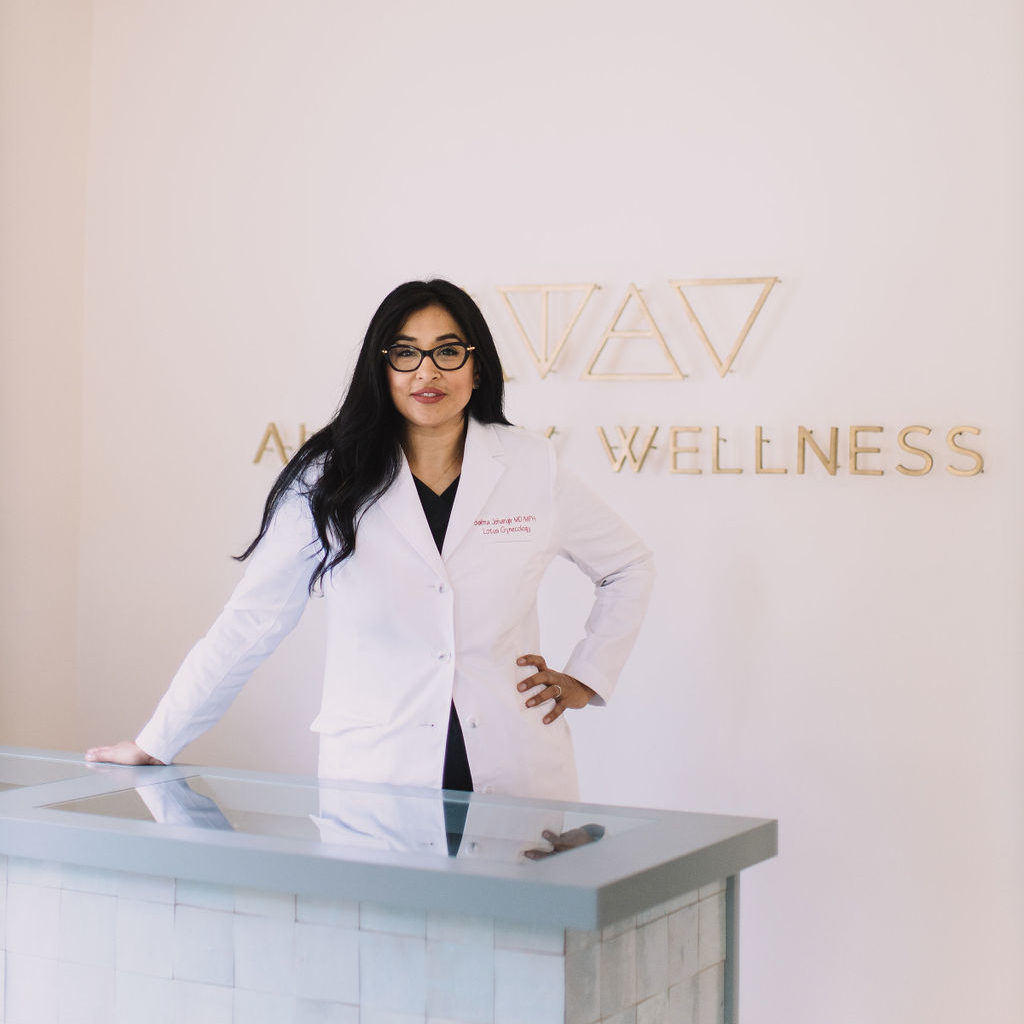Sponsored content brought to you by Alchemy Wellness
Dr. Saima Jehangir is committed to helping men and women live life most abundantly. Her holistic approach to patients involves nourishing them completely in body, mind and soul. After earning a bachelor’s degree in zoology and her master’s in public health, she completed her medical degree at the University of Texas at San Antonio. She went on to residencies in obstetrics and gynecology. She combines Eastern and Western practices to provide truly customized treatment plans to her patients.
Austin Woman asked Dr. Jehangir a few questions about keeping up healthy habits during, and after the pandemic.

1. Why is it important to focus on personal health and well-being during quarantine?
Dr. Jehangir: COVID/quarantine and the “Snowpocalypse” are all a form of trauma. They have to be treated as such. Part of healing trauma is the awareness that what you are going through/went through is trauma and then taking the appropriate steps to heal from it. Self-care is one of those steps.
2. In your professional opinion, how can Austinites prioritize their health as the city opens back up?
Dr. Jehangir: Any path to wellness requires addressing the mind, body and the soul. Assessing where you are in all these aspects and then making a plan to heal all three. Are you behind on health screenings? Sign up for your annual exam. Have you gained weight and need to lose it (everyone has)? Find a dietician and exercise plan that works for you. Are you drinking too much? Start being mindful of drinking to numb yourself, maybe switch to tea and kombucha. Are you carrying fear around that is weighing you down? Find a therapist to help you work through that. Did you actually enjoy cutting some negative people out of your life? Don’t invite them back in. Are there places you want to go? Places you want to see? Get a vaccine and start traveling. COVID has been an amazing opportunity to reset our priorities.
3. How would you describe your approach to wellness? It’s a journey.
Dr. Jehangir: “No man ever steps in the same river twice, for it’s not the same river and he’s not the same man.” —Heraclitus.
We must address ourselves every day, perhaps several times a day, to find out what we need in order to be well. Like I mentioned before, look at it from different aspects. Meditation and prayer are powerful tools to help us recognize where we are lacking and where we need to place attention.
4. What is your food philosophy?
Dr. Jehangir: I have so many food philosophies!
Diet has to be individualized; it’s not a one size fits all. Genetics play a huge role in what we should eat. We should probably eat like our ancestors. My ancestors come from a very hot equatorial place. They ate ancient grains and legumes and many spices. They ate “hot foods” when it was cold outside and “cold foods” when it was hot outside. My ancestors ate seasonally. They ate more when food was abundant and less when it was scarce. They kept ritual fasts and didn’t eat meat on certain days. What did your ancestors eat? We have to listen to our bodies. If certain foods are causing inflammation or pain, elimination may be helpful. I don’t subscribe to the idea that everyone needs to be gluten free, sugar free and dairy free. If foods give you joy, enjoy them in moderation.
Foods are tied to traditions and have such an emotional impact on us. Being told you can’t eat the pasta your grandma used to make can be traumatic. Recognize your emotional relationship to certain food and accept that the relationship is important. Food philosophy has become the new religion and therefore has started to hold a lot of dogma. Inflexible dogma cannot be healthy. When in doubt, food-allergy testing can be helpful.
5. What is one practice you’d recommend to anyone trying to improve their diet?
Dr. Jehangir: Drink less alcohol and eat less sugar. Both can be inflammatory, and we are learning that the root cause of illness is inflammation.
6. What is your personal supplement routine?
Dr. Jehangir: After performing many genetic tests I realized the most important supplements were methylated folate and B12, vitamin D and B complex and vitamin C. Genetic testing can help you individualize your routine as well.
7. What’s your favorite healthy snack?
Dr. Jehangir: I love those satsuma tangerines. They are sweet and tart, fizzy, energizing and full of vitamin C. I also love raw unsalted cashews.
For more information on Alchemy Wellness and to get in contact with Dr. Saima Jehangir, visit http://alchemywellnessatx.com/.


